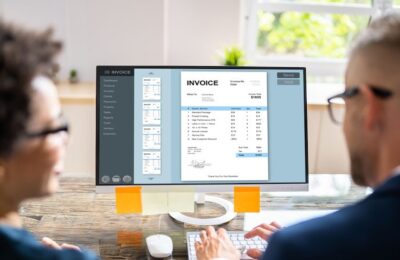Cash flow – managing your SME’s cash flow
Cash flow management is one of those things that plagues all small business owners, particularly on starting up.
Ensuring enough money is coming in to pay staff and cover costs can be a tricky balance – ask too much of your customers and they’ll find another supplier, ask too little and you risk some serious financial issues.
Managing small business finance is about clarity, timing and simplicity.
At THP we have helped many companies to streamline their processes in order to improve cash flow and we’d like to share some of our top tips here:-
1. Make your terms clear
Establishing clear payment terms at the beginning of a contract is vital to minimising issues with invoice payment.
Agreeing a payment plan upfront and in a contract also means you can take any necessary action to collect overdue payments. This often only requires a reminder or two but should you need to take legal action, you have all the proof you need that the terms were accepted.
It also pays to ensure that both your customer and your accounts department know what is due and when, so that payments can be easily tracked.
A 30-day window for payment of invoices is fairly standard in many industries, so if you adopt this, do so across the board. It can be tempting to have different windows for different clients but sticking with one rule for all keep things simple.
2. Set targets
One way to control small business cash flow is to set targets and prepare a forecast for the next few months.
Look at your previous year’s income and expenditure as a starting point and factor in any contracts or costs you know about. You can then begin to predict which months may need some extra focus from the sales team.
3. Ask for a deposit on larger projects
This is one of the cash flow management strategies that many businesses fail to adopt – to their cost. When charging for a larger project or service, especially one that requires a lot of resources and time, build in a deposit to your contract.
This ensures that your client commits to the agreement before you begin work and means you don’t lose out on as much should they suddenly pull the plug or fail to pay the balance. The amount you request will depend on your industry and the nature of the project, but it could be anything up to 50 per cent of the total cost.
4. Invoice promptly
For small businesses in particular, finding time to get everything done can be a challenge. But leaving your invoicing for several weeks – or even days – can really have a negative impact on your cash flow.
By invoicing by email on completion of a job, you can ensure money is coming into the business throughout the month instead of in one chunk at the end. You will also have a record of the invoice being sent for your peace of mind.
5. Introduce retainers and fixed payment
If you have customers who request work on a regular basis, consider offering them a retainer agreement, whereby they pay a set free each month for a pre-agreed level of service.
These contracts can be introduced with a minimum term of, for example, six or twelve months, thereby guaranteeing a set income for that period
Another option for larger, more expensive services is to offer a fixed price package where a customer can pay off an agreed amount of their invoice per month for a fixed term. This can benefit you by producing a regular, known income for a short period and benefits your customer by making the payments affordable.
6. Make paying easy
In this digital age, there’s no excuse for making payment difficult by, for example, insisting on cash or cheque. Providing bank or PayPal details on an invoice means the money arrives in your bank account faster and makes it easy for clients to transfer the money.
7. Invest in the right accounting software
There are several products on the market nowadays that make managing cash flow much easier.
One of our best pieces of advice on cash management for small businesses is to invest in cloud-based software. Not only can it improve efficiency and flexibility, it also means you can rest assured that all your data is securely backed up.
8. Remove unnecessary overheads
When times get tough, you sometimes need to be inventive and ruthless in order to stay solvent.
If you have machinery or equipment idling in your facility that could be sold or rented out, look into using it to get some immediate cash into the business.
Shifting it on may also mean you can cut down on storage costs.
9. Request different terms with vendors
Another way to save money and improve your cash flow when managing small business finance is to request more favourable payment terms from your suppliers.
Negotiating an extra seven days on your payment window could mean the difference between finishing the month comfortably and finding your finances overstretched.
If your requests are declined, it might be worth looking to see if you can find alternative suppliers who can offer cheaper prices or better terms for the same quality of product.
10. Focus on cash flow over profit
When implementing your finance management strategy, focus on cash flow first and profit second.
If you can’t pay your bills, you’re going to struggle to start making a profit, no matter how good your products are or how high your margins.
If necessary, work with smaller, more reliable customers initially to keep cash flow healthy and then look to build on your customer base as cash flow improves. Focusing solely on profit can spell failure further down the line.
If you need some help with financial forecasting or cash flow management for your SME, speak to our expert advisors at THP.
From our offices in Sutton, Wanstead, Chelmsford and Saffron Walden we can help businesses across the south east to increase their chances of success through financial planning and account management.
About Mark Ingle
Owner-manager business specialist, Mark Ingle is key to building relationships with clients at the Chelmsford office. “I like to see clients enterprises grow and succeed.” Mark explains, “The team here has a lot to offer and I can see a lot of new businesses responding to that.”
Having worked for accountancy practices in London and Essex, Mark has worked with a range of companies varying in size. For Mark, THP stands out for its “local firm approach with the resources of a larger practice.”
Although a keen traveller, Mark is focused on giving his clients at THP the highest service, “Right now, I aim to help the clients we have to the best of my ability which will help me attract more of the right clients in the future.”
Mark’s specialist skills:
- Annual and Management Accounts
- Tax and VAT
- Strategy and Business Planning
- Marketing and Sales
- Business Development












